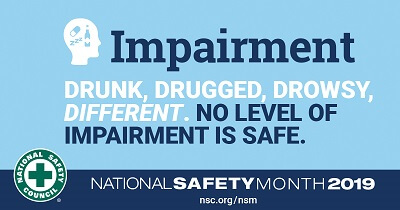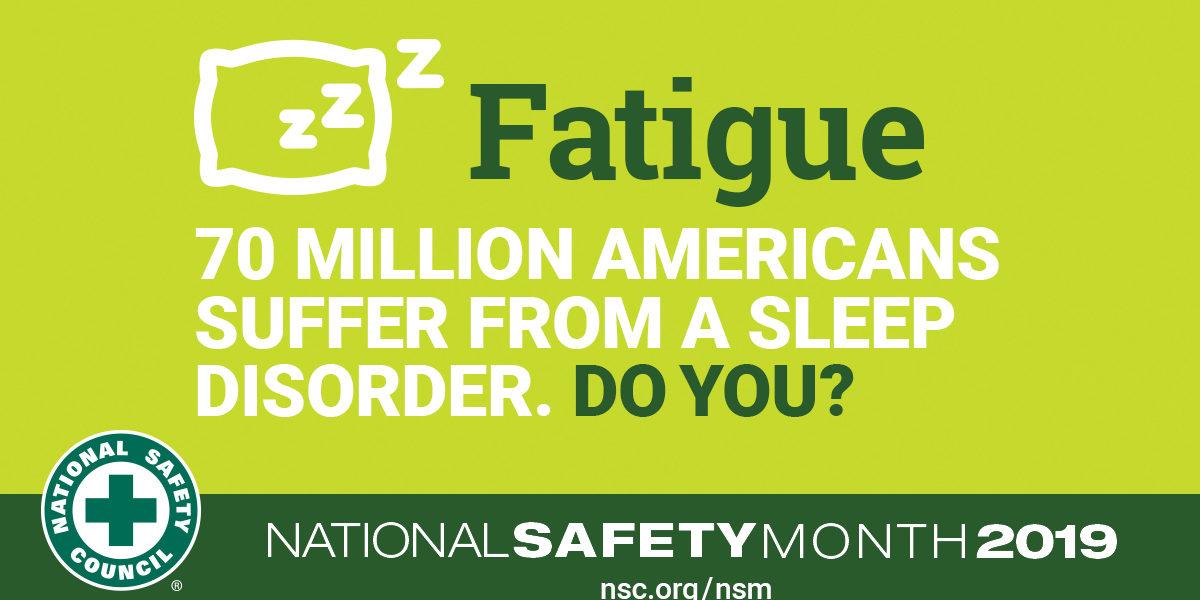Observed annually in June, National Safety Month focuses on reducing leading causes of injury and death at work, on the road and in our homes and communities.
Fight fatigue risks
As our lives get ever busier, our sleep is often the first thing to go and we can quickly become fatigued. Being fatigued can have serious impacts on our health and safety, but some simple steps can help you get the rest you need.
Don’t sacrifice sleep!

If you aren’t getting the recommended 7-9 hours of sleep each day, consider these risks:
- When you miss out on sleep, it can affect more than just your productivity: fatigue can lead to decreases in cognitive performance, vigilance, accuracy and judgement, among many other effects.
- Chronic sleep deprivation can cause a number of serious health risks, such as depression, obesity, cardiovascular disease and other illnesses.
- Losing small amounts of sleep over time can be detrimental. A person who sleeps 6 hours a night for 2 weeks performs similarly to someone who loses one full night of sleep.
- Driving while fatigued can be similar to driving under the influence of alcohol. Driving on 4-5 hours of sleep means you are four times more likely to crash.
- Up to 70 million Americans have a sleep disorder, which are major drivers of fatigue. Left untreated, sleep disorders can contribute to decreased productivity, lead to higher rates of absenteeism and even exacerbate other health problems.
- A typical employer with 1,000 employees can expect to lose more than $1 million each year to fatigue.
- Not sure if you’re fatigued? Microsleeps and yawning are usually the only visible symptoms of fatigue, but hidden symptoms can include decreased vigilance, attention, memory and concentration.
- Related articles:























